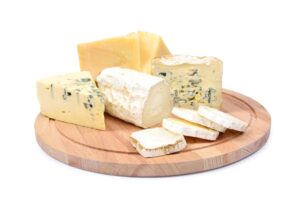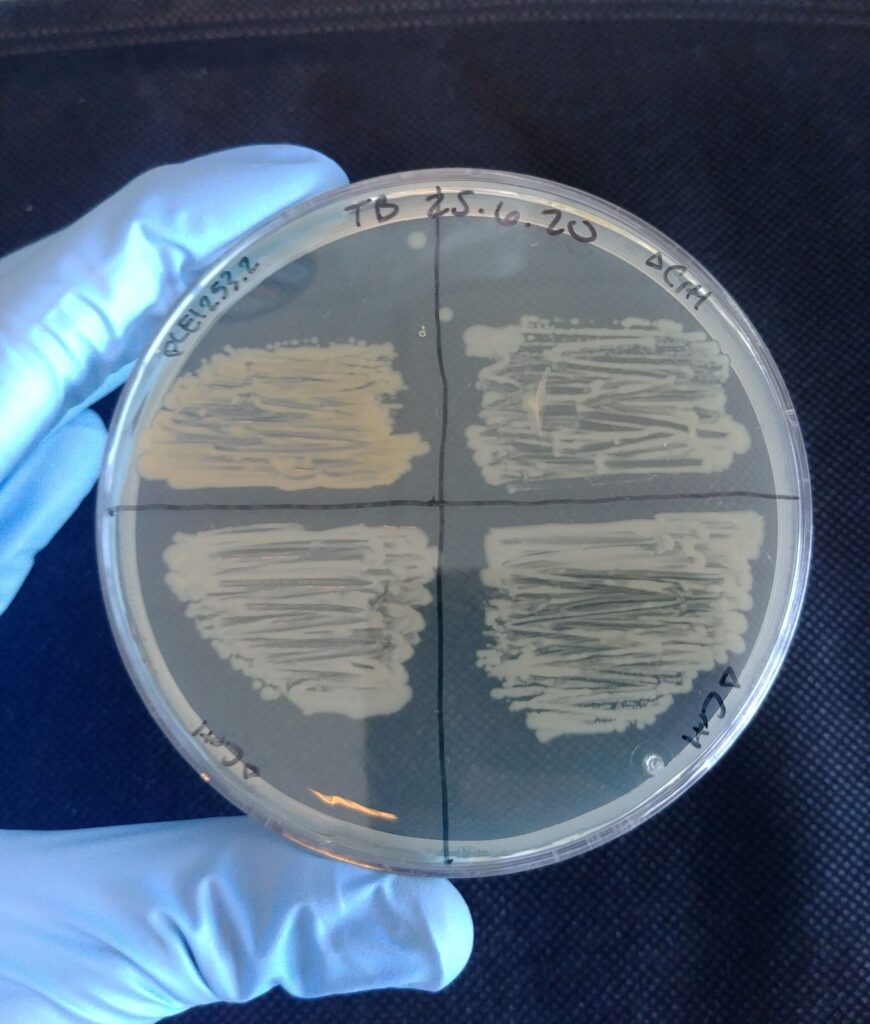CRISPR-Cas technology launched a revolution in biotechnology a few years ago. With technology, genetic modification can be performed easily and quickly in the cells of most organisms. However, the technology did not cover high-temperature organisms due to the fact that the original version of the CRISPR-Cas "tool" was based on enzymes that lose their activity at high temperatures. Matís researchers have now, in connection with the research project ThermoTools, designed a heat-resistant CRISPR-Cas system.
The project ThermoTools began in 2019 and is led by Björn Þór Aðalsteinsson, project manager at Matís. He worked on the project in collaboration with Elleke Bosma at DTU University of Technology in Denmark, and received a grant from the Rannís Research Fund. We talked to Björn Þór about the progress of the project and the opportunities for genetic modification of thermophilic microorganisms.
ThermoTools aims to develop systems and tools to genetically engineer thermophilic microorganisms.
The tools available today are usually complex and their use requires a lot of work and time. This has hindered research into organisms that live at high temperatures, both in terms of their basic biology and their practical use.
The CRISPR-Cas technology was first introduced in 2012 and it can be said that a revolution in biotechnology has been launched. With technology, genetic modification can be performed easily and quickly in cells to any organism. However, this revolutionary technology did not reach high-temperature organisms because the original version of the CRISPR-Cas tool was based on an enzyme that loses its activity at high temperatures.
ThermoTools set out to design a new CRISPR-Cas system that could be used at high temperatures, at least 60 ° C.
Who benefits from project work like this and who will benefit from the technology and the CRISPR-Cas tool?
First, the study benefits scientists who study thermophilic microorganisms for basic scientific or practical purposes.
Microorganisms are used for various types of industrial chemical production. They are grown on a large scale (tens or hundreds of liters) and the substances formed during their growth are isolated. Their products include biofuels (eg ethanol and methane), organic solvents (eg acetone and butanol), medicines (eg antibiotics), enzymes (used in detergents, cheese making and baking), vitamins and dyes (eg astaxanthin).

The use of thermophilic microorganisms for this purpose has not gained a foothold to date, partly due to the lack of effective tools for their genetic modification. Their use for this purpose, however, may have several advantages, among other things because the solubility of substances increases and chemical reactions are generally faster at high temperatures, which promotes the efficiency of such processes.
In the cultivation of micro-organisms for industrial chemical production, there will generally be considerable reductions in production due to the growth of spoilage micro-organisms, that is to say external micro-organisms that settle in the micro-culture. It can be concluded that such reductions could be significantly reduced by the use of thermophilic microorganisms due to the fact that spoilage microorganisms are unable to grow at high temperatures.
Matís conducts research with the aim of developing thermophilic microbial strains that can be used for the industrial production of biofuels, antioxidants, etc. The products of the ThermoTools project will act as a catalyst for these projects and enable complex genetic modifications that were not possible before. The products have also been made available to other scientists who can use them for the same purpose - to simplify their work on the genetic modification of thermophilic microorganisms.
What are the next steps in the ThermoTools project?
"The project is still under construction, but we have already designed a thermosetting CRISPR-Cas9 system and verified that the system can be used to genetically modify organisms that live at at least 65 ° C."
The first results of the project were recently published in a scientific article in the journal Scientific Reports but it can be read in its entirety here: Efficient genome editing of an extreme thermophile, Thermus thermophilus, using a thermostable Cas9 variant. Björn Þór also presented the results Genome Engineering: CRISPR Frontiers conference earlier this month. It was a conference organized by Cold Spring Harbor Laboratories, organized by Jennifer Doudna, who won the Nobel Prize for her research on CRISPR Cas systems in 2020.
Work will also be done on adapting the system to genetic modification in more organisms. "We are currently adapting the system to genetic modification Rhodothermus marinus and Thermoanaerobacterium AK17. We have already described the function of the system in the model organism Thermus thermophilus. R. marinus and AK17 are both thermophilic bacteria and are studied, among other things, for the production of ethanol and lycopene, "says Björn Þór.

As the project progresses, the ThermoTools project page will be updated and those interested can follow it here: Development of CRISPR-Cas systems for genetic modification of thermophilic microorganisms used for basic and practical research and in English here: ThermoTools. You can also find bits of information and live footage of the project on Matís' Instagram page here: Instagram.com/matis.
Projects such as ThermoTools are carried out by Matís' biotechnology group. If you are interested in getting to know the group's activities further, you can watch an introduction to biotechnology and biomaterials here: Focus meeting - Biotechnology and biomaterials.
In the next few days there will also be a new episode of Matvælinu, Matís' broadcast on research and innovation in food production. There, Björn Þór will discuss the ThermoTools project as well as other projects he has worked on and put these issues in the context of industry and business with other interviewees.

